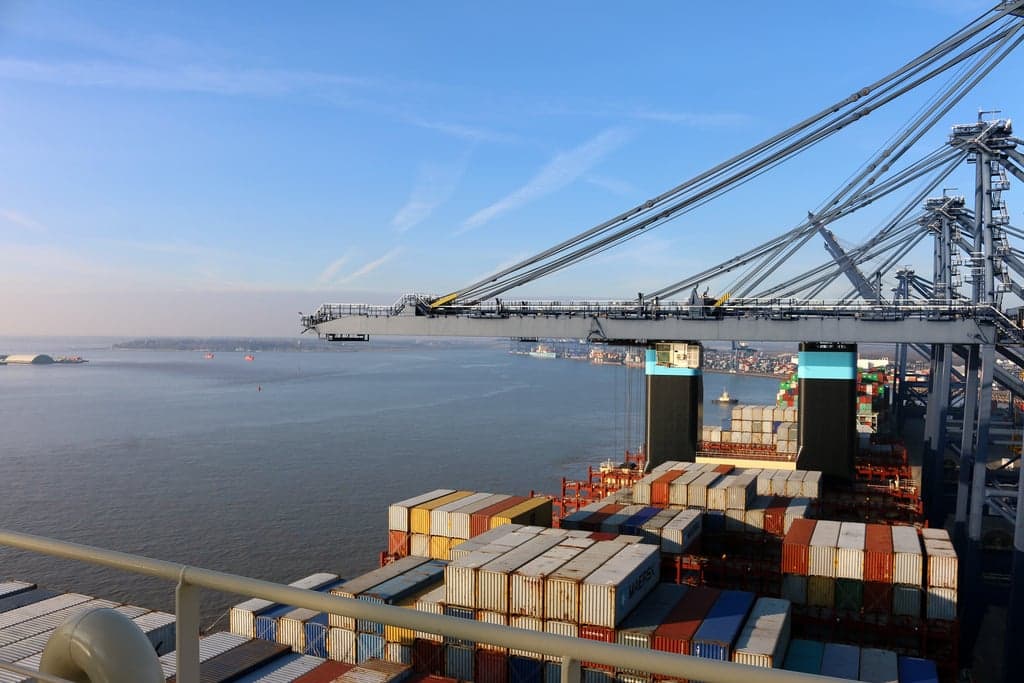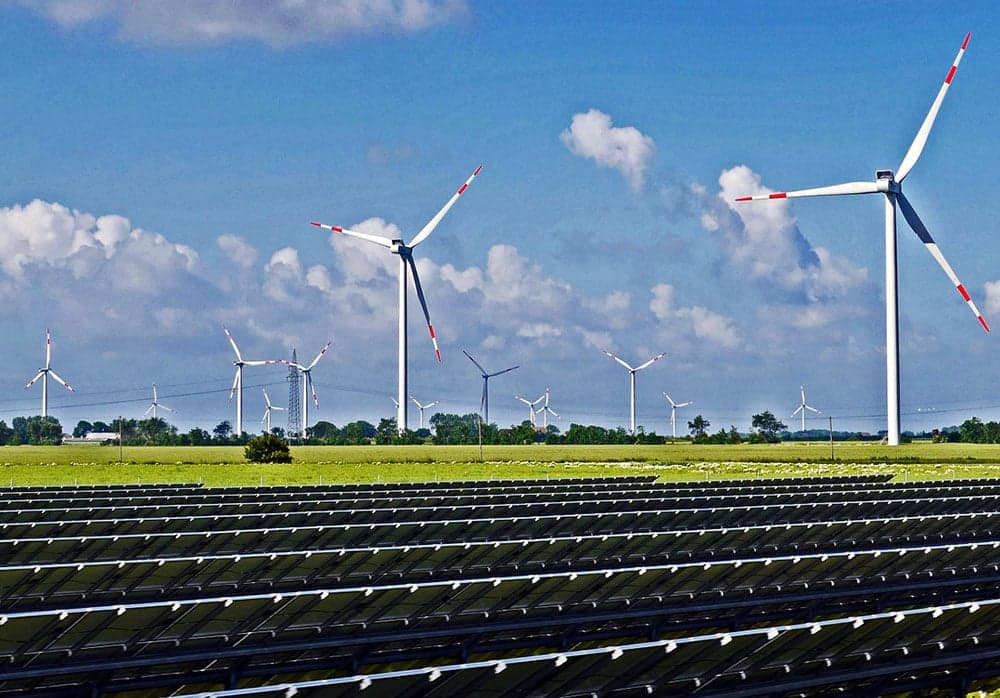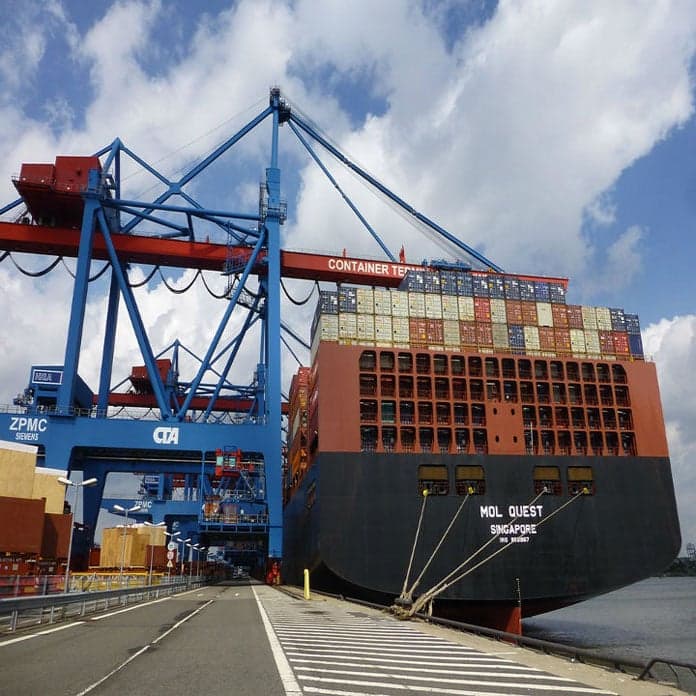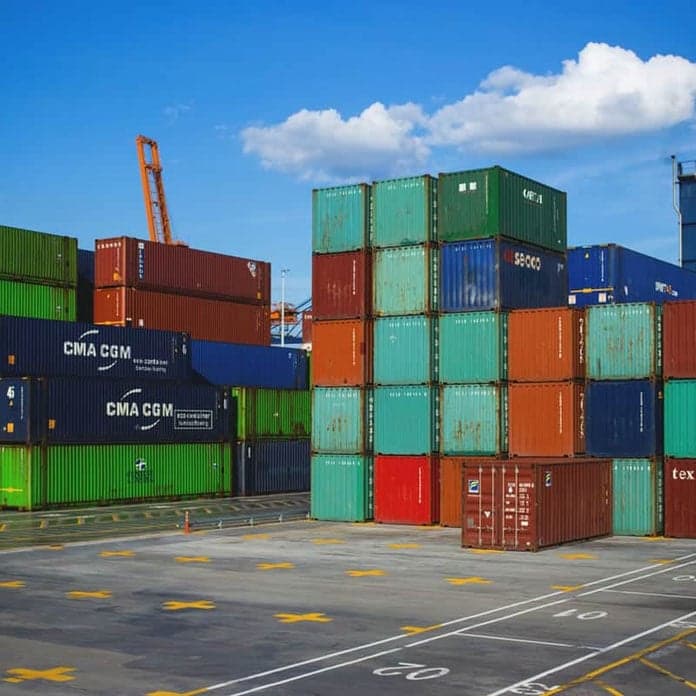The first round of NAFTA renegotiations between the United States, Canada, and Mexico concluded in Washington this past Sunday. Trade representatives from each country began to lay out their goals for a probable update of NAFTA policy. The 24-year-old trade bloc, which was established to eliminate barriers among its three trade partners, has garnered intense backlash in recent years. According to data from the Bureau of Labor Statistics, a third of U.S. manufacturing jobs have been lost since NAFTA was first established. In addition, NAFTA has caused Mexico to lose 1.3 million farm jobs due to removed tariffs that rendered Mexican farmers effectively noncompetitive.
globalEDGE Blog - By Author: Nikki Nordberg
Publish Date:
How drastically has Brexit affected the United Kingdom’s economy, and where does the country stand as it attempts to separate from the European Union? Reports released by the INSEE on July 27th indicate that the United Kingdom only saw a .3 percent increase in GDP during last quarter, marking yet another term in which the country has lagged in economic growth while rival countries such as the United States, France, Spain, Austria, and Sweden have performed far better.
Publish Date:
Recent indicators by top battery and automotive manufacturers have sparked interest in the revolution of the electric vehicle (EV) market. Though electric vehicles have not hit mainstream markets yet, many industry analysts believe that EV technology is developing faster than consumers think. Additionally, an updated report by Bloomberg New Energy Finance (BNEF) reveals an optimistic forecast of the EV market due to falling prices of batteries and the aggressive policies promoting zero-emission vehicles in China and Europe. Previous pessimistic reports of higher sticker prices and government subsidies have become outdated, and BNEF includes detailed material to prove it.
Publish Date:
Clean and renewable energy has continued to gain worldwide importance and is growing at a rapid rate in today's society. Globally, almost 10 million people were employed by the renewable energy sector in 2016 alone. According to reports from the International Renewable Energy Agency (IRENA), that is a 1.1% increase from the number employed in 2015. The report indicates that the main employers in renewable energy were the United States, China, India, Brazil, and Germany, with most jobs coming from the solar power sector. Additionally, the Bureau of Labor Statistics reported that wind turbine service technician is the fastest-growing occupation in the United States.
Publish Date:
The scope of global business and international trade has seen optimistic improvements throughout recent years. Many analysts and companies are becoming increasingly confident regarding global trade and overseas opportunities. This confidence is due to global trade growth exceeding initial forecasts as well as the stabilization of China's economy and demand. These particular factors could be indicative of a year without a major economy falling into recession, a benchmark that has never previously been reached.
Publish Date:
The country of Germany has been known as Europe’s economic powerhouse for quite some time, and recent reports regarding the country's projected economic growth seem to confirm it. According to official data from the National Statistical Office, Germany's gross domestic product (GDP) expanded by 0.6 percent during the first quarter of 2017. German economic institutes accredit this surge in economic growth to healthy domestic consumption as well as investments and exports. This recent report has shifted projections by German economists; leading German economic research institutes have increased their growth in GDP forecasts for 2017 from 1.4% to 1.5%.
Publish Date:
In part two of this week's leisure industry blog series, we look at current trends in the global recreation and tourism sector.
Recreation and tourism have become a fundamental fraction of economies worldwide. The outdoor industry has become a massive economic force, and it is happening in countries all around the world. According to a 2014 study, in the United States alone, an estimated of 29.7 billion dollars in economic activity and nearly 277,000 jobs came from the pockets of visitors at the national parks. Secretary of the Interior, Sally Jewell, stated in an article released in 2015 that "our national parks often serve as economic engines for local communities, drawing tourists from around the world who pump money into area stores, restaurants, hotels and more". Jewell also emphasized the importance of investing in the national parks across the country, stating that it not only preserves and supports communities, but it also promotes economic growth.
Publish Date:
Recent reports published by the World Trade Organization (WTO) have forecast a remarkable recovery in global merchandise trade for 2017. Last year, global merchandise trade failed to reach its projected growth of 1.7%, ending the year with a growth of 1.3%, marking 2016 with the slowest growth since the financial crisis. Among other indicators, WTO Director General Roberto Azevedo blamed the poor performance in 2016 on the slowdown in emerging markets, stating that imports hardly grew in volume terms. However, the six-year trend of disappointing growth may be coming to an end as the world economy gradually begins to regain momentum. In a report released on April 12th, the WTO predicts a 2.4% growth in global merchandise trade by the end of this year, stating that, for the first time in several years all regions of the world economy should experience a synchronized upturn in 2017.
Publish Date:
In part two of this week's transport manufacturing blog series, we look at current issues affecting international trade in the auto industry.
Implemented in 1994, the North American Free Trade Agreement (NAFTA) consists of a trilateral compromise signed by Canada, Mexico, and the United States. The initial goal of NAFTA was to eliminate barriers to trade and investment between the U.S., Canada, and Mexico. Prior to NAFTA, American cars sold in the United States were made almost exclusively in the U.S., and most vehicles were sold in the market in which they were made. When NAFTA came into effect, U.S. automakers began diffusing their production across the trade zones, particularly taking advantage of the cheaper labor and lower production costs in Mexico. But, according to various economists, it is unclear if scrapping NAFTA would shift plants and jobs back to the United States.
Publish Date:
Established in 1988 as the National Association of Small Business International Trade Educators (NASBITE), NASBITE International is a nonprofit organization who aims at advancing global business practice, education, and training. NASBITE has been a leading organization that promotes an exchange of information and resources among global business education and assistance professionals. Among many others, NASBITE’s specialties include international trade, global marketing, small business administration, supply chain management, and professional development.
Publish Date:
In part four of this week's trade bloc series, we explore ECOWAS.
As of February 25, 2017, Morocco has become the latest African country to request to officially join the Economic Community of West Africa States (ECOWAS). ECOWAS was created in 1975 to increase economic and political stability among its members. If accepted, Morocco will become the 16th member of the West African bloc. According to sources, the decision was made by the need for Morocco to crown the strong political, human, historical, religious and economic ties at all levels with ECOWAS member countries. Although not formally a member, Morocco has maintained close relations with the ECOWAS for several years.
Publish Date:
The European Commission recently adjusted their forecast for the economic growth of the United Kingdom for 2017. Although the U.K. is expected to slow its economic growth relative to the previous year, the Commission now anticipates an annual growth of 1.5% in 2017; up from their previous prediction of 1.0%. The European Commission still expects an annual growth of 1.2% by 2018, which would still remain far below their 2% growth in 2016. This decrease in economic growth could be a response to both rising prices and the uncertainty of Britain’s future ties with the European Union.
Publish Date:
Following his first days in office, President Donald Trump has taken immediate action to reorder U.S. economic alliances, scheduling meetings with leaders from Mexico, Canada, and the UK. President Trump has emphasized trade deals to be one of his first priorities after entering office on Friday, January 20th.
Publish Date:
As winter vacations come to a close, the global workforce is underway again, and there are several questions business and corporate travelers have regarding their upcoming costs of travel and stay. Among the many factors, the future of international business travel remains uncertain due to the prolonged set back in the Chinese economy, the United Kingdom’s monumental vote to depart from the European Union, the controversial U.S. Presidential election, and increased security concerns across the globe. However, despite the uncertainties, global demand for air travel remains at a record high.
Publish Date:
Present-day society has become extremely technologically advanced, and economic sectors with on-demand technologies are continuing to evolve at a rapid pace. Specifically, on-demand refers to services with digital platforms that give you instant access to the services they provide. While these technological advances are often seen as beneficial and representative of how far we may advance in the 21st century, many businesses have been negatively affected by unforeseen issues.
Publish Date:
Today, the Organization of the Petroleum Exporting Countries (OPEC) will be conducting a highly anticipated meeting regarding the future production of oil and its prices. The main issue the meeting will focus on is the amount of oil supplied by members of OPEC, with an emphasis on the leading oil producing countries in the group. Investors are anxiously awaiting the outcome of the OPEC decision to potentially cut oil production globally. Outcomes of the previous meeting conducted in Algiers seemed hopeful, as the majority of OPEC members agreed to cut as much as 2 percent of their total oil production.
Publish Date:
On the brink of recession, the small, trade-dependent country of Singapore is on track to log its slowest growth rate since 2009. Government analysts expect this year’s growth rate to be between 1 and 2 percent. This grinding halt in economic growth caused the shutdown of an estimated 42,000 businesses in the first six months of 2016. In comparison, 2015 saw the shutdown of only 49,000 businesses.
Publish Date:
Consumer prices surged this September in the United Kingdom, rising at the fastest annual pace in two years. A seasonal rise in clothing prices, increasing hotel stay prices, and a spike in gas prices are all contributing factors to this inflation. According to the Office for National Statistics, the Consumer Price Index has risen by 1.0% as of September in 2016, the highest increase since November 2014.
Publish Date:
The economic impact of natural disasters can be witnessed on a global scale. These disasters often set in motion a variety of chain reactions, negatively impacting and in some cases decimating sectors of the global economy. "In 2014, 72 percent of global losses classified as "disasters" were caused by extreme weather events: hailstorms in Europe, drought and severe winter weather in the U.S., hurricane damage in Mexico to typhoon damage in the Philippines, and disastrous flooding in the U.K., India, Pakistan, and Afghanistan."
These are some of the most infamous natural disasters with respect to their economic repercussions:
Publish Date:
Chaos flooded the streets of Berlin. 80,000 protesters gathered, while up to 320,000 others held organized protests in seven other major German cities, to express their strong opposition to the proposed Transatlantic Trade and Investment Partnership (TTIP) between the EU and the US. In 2013, the EU and the US began negotiating a trade deal, hoping to create the world’s largest free trade market of 850 million consumers. The proposed deal promises to lower tariffs, and hopes to promote economic growth overseas. Protesters fear the deal will lead to an increase in outsourcing and unemployment, as it favors industrialized agricultural processes over non-GMO privatized food production. This prioritization would likely cost thousands of jobs and could potentially compromise food safety and employment standards.
Publish Date:
International trade is an exceptionally important driving factor for corporate and economic growth. Following a two year decline in international trade figures, the Organization for Economic Cooperation and Development (OECD) finally reported growth in the second quarter of 2016. Members of G20, an exclusive group of 19 countries and the European Union, showed an increase in combined exports and imports after a run of declines. The majority of G20 countries' export economies rose by at least 1.5% in the second quarter of 2016. Unfortunately, a few major countries such as Argentina, Canada, and China failed to experience export growth.
Publish Date:
On June 23rd, the United Kingdom made a monumental decision to exit the European Union. However, the magnitude of impact which the Brexit will have on the British economy remains uncertain. Following the vote, significant increases were predicted in the UK’s economic welfare and consumer confidence, although future statistics may indicate otherwise. After a week of collecting official data, the numbers forecast that consumers are spending more, the value of the pound has weakened, and tourism has increased in the UK. Simultaneously, interest rates have taken a historical cut, while inflation has begun to rise.
Publish Date:
Australia's central bank recently cut interest rates from 1.75% to 1.5%, a direct consequence of the country's faltering job market and record-low inflation. The Reserve Bank of Australia hopes to boost the labor market as well as induce economic growth via this interest rate cut. After a decade-long mining boom, the Australian economy gradually shifted towards less commodity-dependant growth, helping the nation avoid a recession. Unfortunately, there are many indicators that Australia's gross domestic product (GDP) is losing momentum. Economic growth of 1.1% in the first quarter of 2016 has been largely attributed to the dominance of net exports. Analysts suspect such exports to contribute minutely to overall economic growth. Data from the Australian Bureau of Statistics reported the country’s trade deficit rose to $3.2 billion ($2.4 billion) in June, while exports declined 1%, and imports increased 2%.
Publish Date:
In 2009, Brazil won the 2016 Summer Olympics bid. Their economy was healthy, the sixth largest in the world by 2011, and the Olympics were expected to be exceptionally profitable. Despite this, with less than one month until the start of the Summer Olympics in Rio, Brazil may be experiencing one of their worst economic crises since the 1930's. Brazil has been declared a state of financial disaster, and has remained entrapped in a recession causing their economy to shrink 3.8 percent in 2015. A federal bailout of $900 million given to the government was insufficient to revert the crisis. Government corruption, tax exemptions, falling commodity and oil prices, and the Zika outbreak are all contributing factors to the economic turmoil.
Publish Date:
China has become what Huffington Post refers to as, “the world’s factory”, and has remained one of the top manufacturing countries in the world. However, the Chinese economy is undergoing a drastic change, transforming from manufacturing and big industry to a service based economy. By switching to services, around 85 million jobs will be spread across the globe, and the question rises as to where these jobs are going to be relocated.
Publish Date:
Venezuela is home to the largest oil reserves in the world. However, the vast amount of oil exports could not save Venezuela from the economic crisis it is now experiencing. The International Monetary Fund has predicted that the overall GDP for Venezuela will fall by 8 percent, and the inflation rate will rise by 720 percent in 2016. Economic turmoil has caused extensive damage to the country, and Venezuela is in need of change to help save the country from economic collapse.
Publish Date:
Wildfires in Canada have halted oil production, causing oil to drop for the fourth day in a row, making this the longest stretch of declining oil in over a month. Around 1 million barrels a day were halted due to the continuous wildfires over the course of May. The 5,000 square kilometer forest wildfire, nicknamed “the beast” has taken many shifts in directions, which has caused these fires to be more difficult to contain. However, municipal authorities in Alberta stated on May 20th that conditions were improving and mandatory evacuations orders for seven oil-sands worker camps have been lifted, and operations are underway again.















